Meet the 2021 Margaret Brent Award honorees
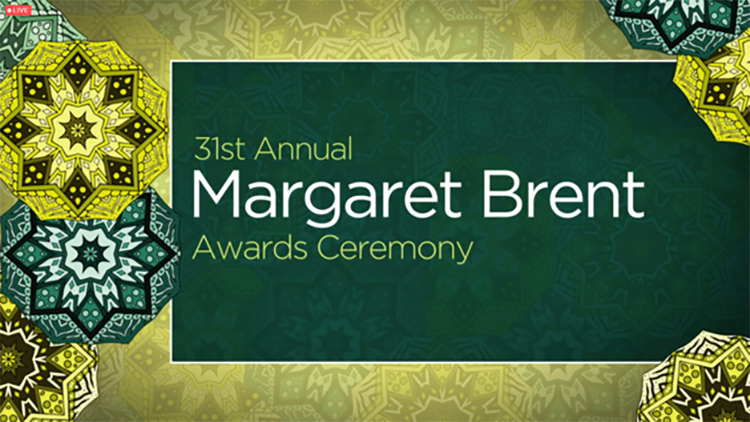
The ABA Commission on Women in the Profession presented this year’s Margaret Brent Women Lawyers of Achievement Awards virtually on Thursday to a longtime judge and four lawyers who have worked in nearly every area of the legal profession.
The commission established the annual awards in 1991 to recognize and celebrate female lawyers who have achieved professional excellence within their specialty and helped pave the way for other women. It is named for Margaret Brent, who arrived in the colonies in 1638 and is recognized as the first female lawyer in North America.
An ABA press release is here.
“Each of the honorees have not only reached individual professional milestones but through their accomplishments and leadership have led by power of example,” Maureen Mulligan, chair of the Commission on Women in the Profession, said during Thursday’s awards ceremony. “We are grateful for their resiliency and grit as they have powered on and become leaders in the legal profession.”
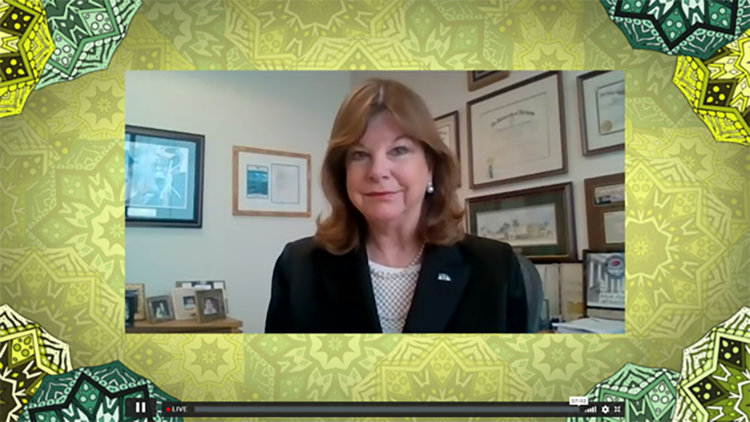 ABA President Patricia Lee Refo also delivered remarks during Thursday’s ceremony.
ABA President Patricia Lee Refo also delivered remarks during Thursday’s ceremony.ABA President Patricia Lee Refo, who also attended the ceremony, commended the award’s recipients for “the inspiring example of grit and excellence you set for lawyers everywhere.” She also reminded the audience that the entire legal profession will benefit from increased support and promotion of female lawyers.
“Barriers to the advancement of women is not just a problem for women,” Refo said. “It is a problem for our entire profession. You have the firm, everlasting commitment of the American Bar Association to support an inclusive legal profession that offers and encourages opportunity and involvement for all.”
The awards ceremony, which was held during the ABA Hybrid Annual Meeting, featured videos highlighting the five honorees’ lives and careers as well as their acceptance speeches. Samples of their remarks are included below.
Meet the Honorees
Judge Irma Gonzalez (Retired)
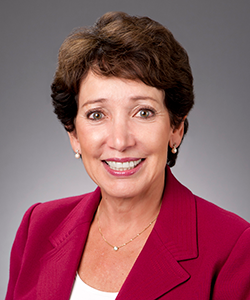
San Diego
Gonzalez was appointed to the U.S. District Court for the Southern District of California in 1992, serving as chief judge from 2005 to 2012. She was the first Latina of Mexican heritage to be appointed to the federal bench and previously served as a U.S. magistrate judge and a San Diego County Superior Court judge. She retired in 2013 and now works as a mediator with JAMS (formerly known as Judicial Arbitration and Mediation Services).
She served on the Judicial Conference of the United States’ Committee on Administration of the Magistrate Judges System and Committee on Judicial Security. She was president of the Ninth Circuit District Judges Association, chair of the Supreme Court Fellows Program Commission and co-chair of the ABA Litigation Section’s Federal Practice Task Force. She is a founding member of Latinas in the Law and a graduate of the University of Arizona James E. Rogers College of Law.
On overcoming discrimination as a woman of color: “Set out to prove yourself. You have to work extra hard. I am convinced that women of color have to do this with all their endeavors, and a lot of hard work really helped. I felt the pressure to have to prove myself, but I am blessed to have served as a judge for almost 30 years in three different judicial positions. I am proud to have been the first Latina of Mexican heritage to be appointed to the federal bench in 1992. And during this time, I have committed myself to uplifting and motivating Latinas, to motivate them if they want to go to law school, to motivate them to be good lawyers, and even if they want to be judges, to give them the mentorship that I hope they need.”
Joan Haratani
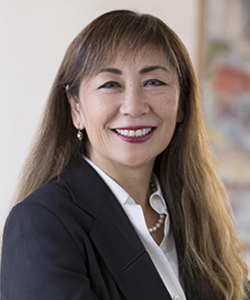
San Francisco
Haratani is a partner at Morgan, Lewis & Bockius, where she has been co-lead counsel on some of the largest mass tort litigations. She focuses her practice on federal and state law, including the Alien Tort Statute, California’s Unfair Competition Law and pharmaceutical and medical device liability doctrines as well as on national mortgage foreclosure issues.
She has served as a member of the ABA’s House of Delegates. She was the first woman of color to serve as president of the Bar Association of San Francisco. She is also a past president of the Asian American Bar Association of the Greater Bay Area and a past regional governor of the National Asian Pacific American Bar Association. She graduated from the University of California, Davis School of Law.
On remaining resilient despite ongoing racial injustice: “I could focus on the feelings of betrayal, depression, isolation, anger, guilt, but I’d rather just flip through to the final chapters. Those are my favorite. And the final chapters talk about how resilient we are, how strong, how we give truth to power in our words and people listen. Together we can be like Margaret Brent. We can wake up in the morning, do good work, bring our best selves to our jobs, our communities, our families, celebrate our differences and appreciate our same-nesses. Learn to love ourselves so that we can love others. Let’s change the world, you and me together, one person at a time, in the spirit of Margaret Brent.”
Joyce Hughes
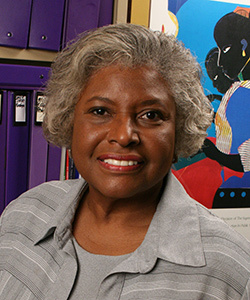
Chicago
Hughes has been a professor of law at Northwestern University Pritzker School of Law since 1979. She was previously an associate professor of law and visiting associate professor of law at the university. Hughes, who has taught courses in evidence, civil procedure and refugees and asylum, was also an associate professor of law at the University of Minnesota Law School and a visiting professor of law at the University of California Hastings College of Law.
She was appointed by President Jimmy Carter to the U.S. delegation to Belgrade, Yugoslavia, on the Helsinki Accords in 1977. She also served in several state and local roles, including as a member of the Chicago Board of Education. Hughes, a graduate of the University of Minnesota Law School, is on the American Constitution Society Chicago Lawyer Chapter’s Board of Advisors.
On becoming the example for others: “My competency to be a law professor as a woman and a Black person often has been challenged. My longevity as a professor can be attributed in part to those law students whose comments I would like to share. ‘Your classroom was one of the first places where I did not feel out of place at law school.’ ‘When you came along as a law professor, the question of mere survival was replaced with a focus on excellence.’ ‘What an impact you’ve had on my understanding of the law, both doctrinally and as a social institution. How important your presence is.’ ‘There are many things that I loved and have found helpful about your class but what was most impactful was being taught by a Black law professor.’ ‘When I started to teach law, I modeled myself on you.’ Similar thoughts have been expressed by some women judges and lawyers whom I did not teach, but who have been inspired by my presence.”
Pamela Karlan
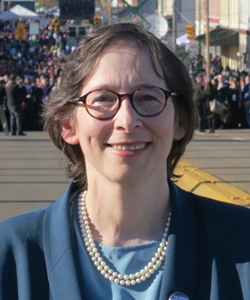
Washington, D.C.
Karlan is the Kenneth and Harle Montgomery Professor of Public Interest Law and co-director of the Supreme Court Litigation Clinic at Stanford Law School. She is currently on leave to serve as the principal deputy assistant attorney general in the Department of Justice’s Civil Rights Division. She was a deputy assistant attorney general in this DOJ division from 2014 to 2015. She also served on the California Fair Political Practices Commission and as an assistant counsel at the NAACP Legal Defense and Educational Fund.
She is the co-author of leading casebooks on constitutional law and litigation and has argued nine cases before the U.S. Supreme Court. While in her first DOJ role, Karlan received the Attorney General’s Award for Exceptional Service. She also served as chair of the American Constitution Society Board of Directors. She graduated from Yale Law School.
On rising above adversity: “Over the past 30 years, I have had the privilege to work on a series of cases where the Supreme Court decided in favor of equality for LGBT litigants, culminating in last term’s decision in Bostock against Clayton County, that employers cannot discriminate against workers for being lesbian, gay, bisexual or transgender. I cannot think of an American legal movement that has succeeded in attaining such fundamental transformation so quickly. But in contrast, the Supreme Court has become increasingly skeptical of voting rights claims…So, the lesson I have learned is to take nothing for granted. It’s the lesson Frederick Douglass offered in his great speech of 1857: ‘Power concedes nothing without a demand. It never did and it never will. If there is no struggle, there is no progress.’ As lawyers in civil rights cases, we have to be part of a larger movement. Technical virtuosity is never enough.”
Ellen Rosenblum
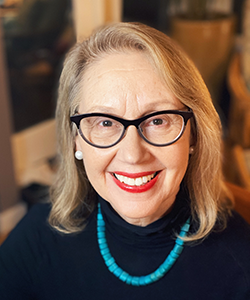
Salem, Oregon
Rosenblum was elected as Oregon’s first female attorney general in 2012 and is now serving her third term. In this role, she has made it a priority to advocate for and protect her state’s most vulnerable populations. Prior to her election, she worked in private practice and then as a federal prosecutor and state trial and appellate court judge.
She has held several leadership roles with attorneys general organizations, including as a member of the National Association of Attorneys General Executive Committee and chair of the Conference of Western Attorneys General. Rosenblum served as secretary of the ABA and as chair of the Section of State and Local Government Law, where she co-founded the State Attorneys General and Department of Justice Issues Committee. She is also a founding board member of Oregon Women Lawyers. She graduated from the University of Oregon School of Law.
On continuing to push for progress for women: “Let me say this as fervently as I can, the Margaret Brent Women Lawyers of Achievement Award means nothing if we who receive this honor do not redouble our efforts. We must ensure there is a pipeline of women lawyers, and by that, I mean including women of color, LGBTQ+ women and women with disabilities. We must ensure women will receive a legal education without the burden of substantial debt and will be presented with opportunities on graduation and beyond fully equal to those of men in the profession. This includes an equal chance to make partner, become lead corporate counsel, judge, dean, tenured law professor, and yes, attorney general. The disparities that persist, whether for the past 400 years or just the past 10, must be eliminated.”
This article was updated at 7:15 p.m. to include remarks from the award ceremony.
Follow along with the ABA Journal’s coverage of the 2021 ABA Hybrid Annual Meeting here.



